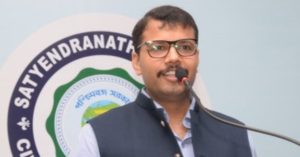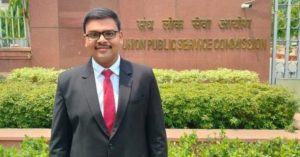1st IPS Officer to Win Kirti Chakra Just Became India’s Most Powerful Bureaucrat!
India's National Security Advisor, Ajit Doval has played a monumental role in the world of Indian intelligence. Did you know he helped end two brutal insurgencies?
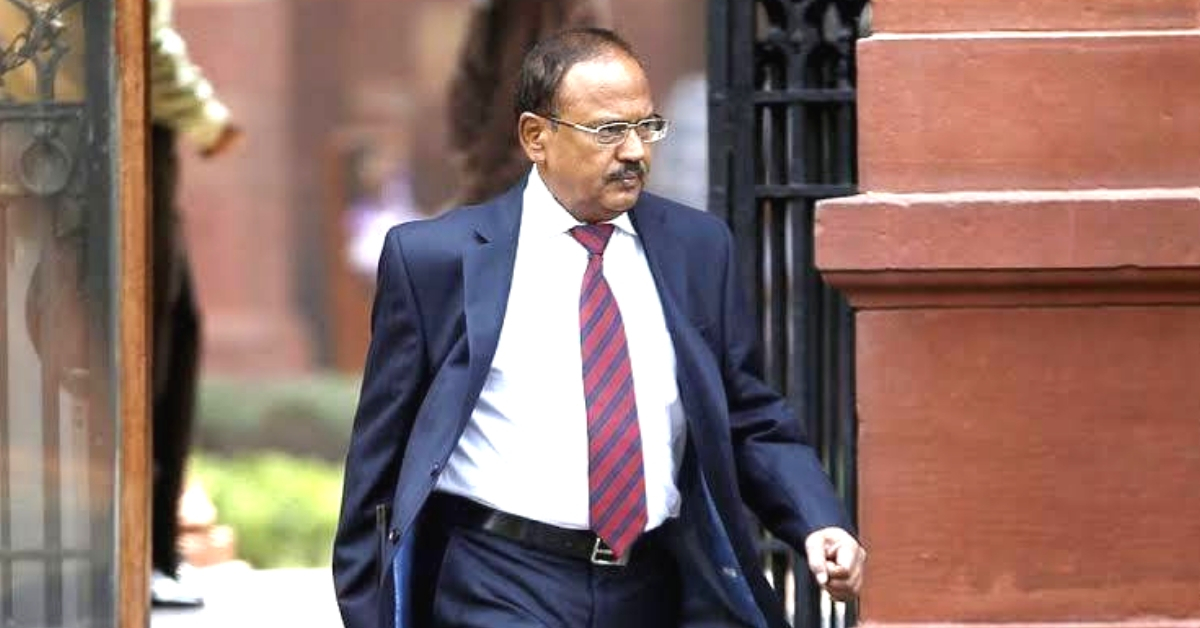
In the summer of 1988, at the height of the Khalistani insurgency in Punjab, a short, nondescript man entered the premises of the Golden Temple in Amritsar, amidst the thousands of Sikh pilgrims that had thronged there. Greeting him inside was Surjit Singh Penta, a commander of the notorious Khalistani terror group.
Penta had converted the temple premises into the proverbial fortress aimed at deterring the Indian security forces from entering it. For him, the man he was meeting was an agent of the Pakistani Inter-Services Intelligence (ISI), who would assist the Khalistani terrorists in wiring the Golden Temple with explosives. Once the task at hand was complete, Penta thought that the Indian security forces would think twice before entering the temple like they had done in 1984 under the orders of Indira Gandhi, the then Prime Minister of India.
New Delhi paid no heed to these threats because the bombs had turned out to be duds, and nine days later, Indian security forces stormed into the temple as part of Operation Black Thunder. In a bloodless encounter, they forced the Khalistani terrorists into surrendering.
The person Penta thought was an ISI agent was none other than India’s current National Security Advisor Ajit Doval.
“Like many intelligence officials, Ajit Kumar Doval has never discussed what happened in the Golden Temple. Those who served during the period, though, speak of skilful deception operations that allowed the penetration of the networks linking Mr Penta to the ISI; of the interception and disappearance of the Pakistani intelligence official as he made his way across the Punjab border to Amritsar,” writes senior defence journalist Praveen Swami for The Hindu.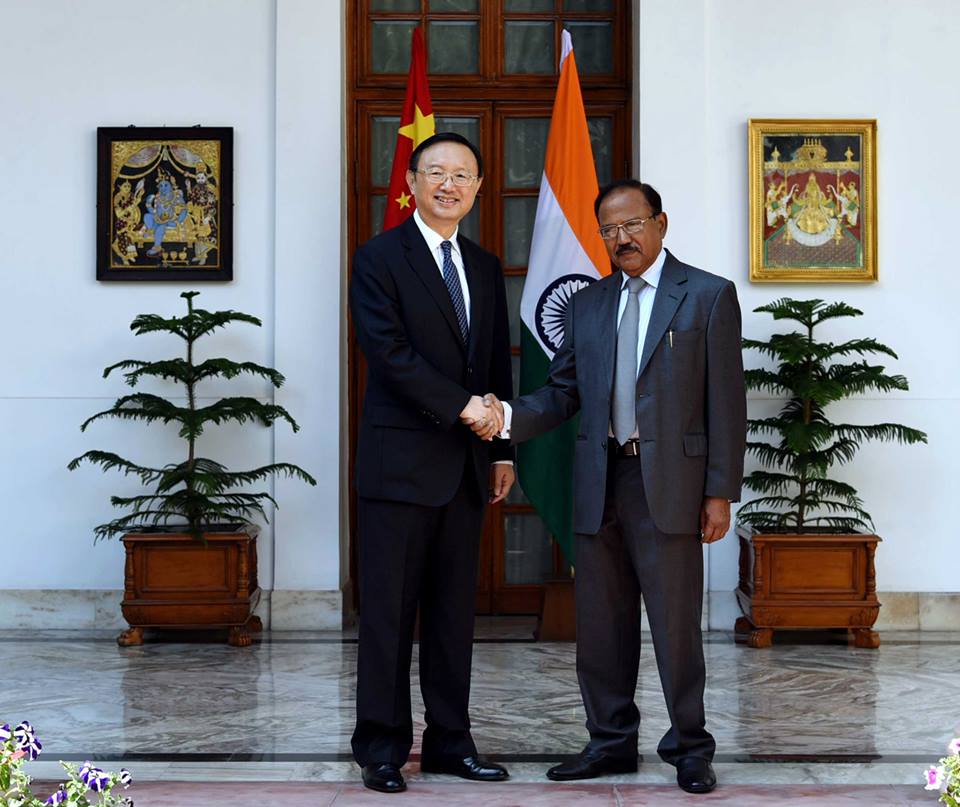
Before this undercover mission, he was posted in the Indian mission in Islamabad, where he was closely observing, “among other things, on the subversion and separatist propaganda to which Sikh pilgrims visiting their holy places in Pakistan were exposed,” writes Shekhar Gupta, Editor-in-Chief of The Print. For his efforts, the 1968-batch Indian Police Service officer of the Kerala batch, was awarded the Kirti Chakra in 1989, thus becoming the first police officer to receive this peacetime medal of valour previously given only as a military honour. Alongside the then Punjab Police chief KPS Gill, Doval is often credited with shutting down the Khalistani insurgency in India.
Earlier this week, Doval became the most powerful bureaucrat in India following Prime Minister Narendra Modi’s decision to revive the Strategic Policy Group, which will assist the National Security Council in framing India’s internal and economic security policies. The SPG will stand front and centre coordinating efforts from a multiplicity of ministries, departments and even institutions like the Reserve Bank of India and the NITI Aayog. Earlier, the SPG was headed by the Cabinet Secretary, but today that honour has been bestowed upon the NSA by the current government.
Among those reporting to Doval are the Cabinet Secretary, all three military chiefs, NITI Aayog vice-chairman, RBI governor, scientific adviser to the PM, home, finance and defence secretaries, and top officers of the Intelligence Bureau, and departments of revenue, space and atomic energy, among others. That’s a lot of power vested in one individual, and there are concerns about such a move. However, this is the degree of trust he elicits with the present ruling dispensation.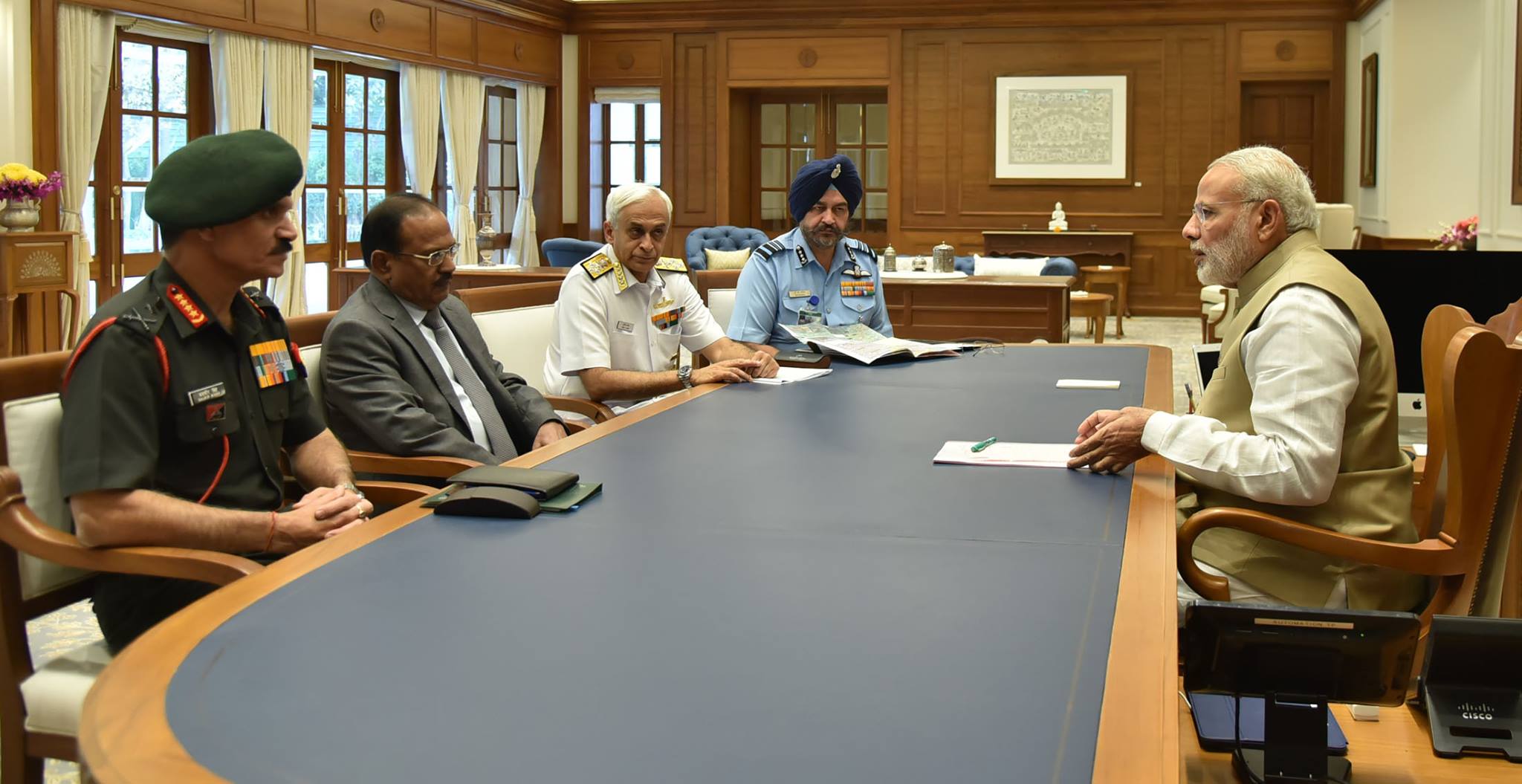
“The SPG shall be the principal mechanism for inter-ministerial coordination and integration of relevant inputs in the formulation of national security policies,” the Centre’s notification said.
This appointment follows his post as chairman of the defence planning committee, another strategic in-house think of the government.
“The NSA is tasked with regularly advising the PM on internal and external threats and overseeing strategic and sensitive issues on behalf of the Prime Minister. With these changes, the government has been able to make him all-powerful,” a senior bureaucrat told NDTV.
Whether his appointment as head of the SPG significantly improves India’s security architecture remains to be seen, but his track record as an officer of the Intelligence Bureau seems to suggest that he’s more than capable.
“Ajit Doval is an IPS officer from the 1968 batch, but like many others of his ilk who came to the IB early—including equally legendary MK Narayanan—became an IB citizen for life. Messrs Doval and Narayanan, incidentally, are from the same Kerala cadre and made quite a team at the IB in their heyday. Kolkata publisher and my friend Aveek Sarkar has the most fitting description for them: if Doval was the 007, Narayanan was the ‘M’ who controlled him,” writes Shekhar Gupta.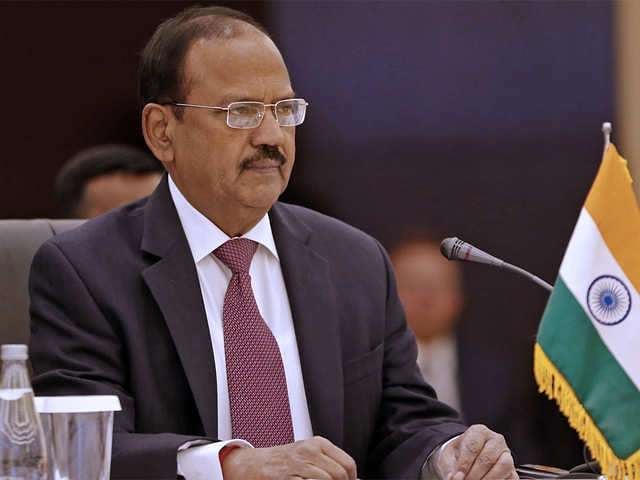
For his Kirti Chakra citation, the government of the day wrote:
“In one such assignment, he was required to deal with a group of terrorists, some of whom were considered notorious and dangerous. Dealing with them posed a grave danger to his own life. Ignoring the risk involved to his personal security, Shri Doval prepared and executed a plan for enticing the terrorists and succeeded in trapping some of the wanted notorious terrorists. In carrying out these assignments, Shri Ajit Kumar Doval has not only exhibited remarkable resourcefulness and devotion to duty, but he has carried out his task with a single-mindedness of purpose and shown exemplary courage even risking his life on several occasions.”
Although another veteran defence journalist Nitin Gokhale claims in this NDTV column that Doval won the Kirti Chakra “for his daring exploit in the Golden Temple Operation,” one could say the same for his work in dousing the flames of the Mizo insurgency in the early 1980s.
As head of the Mizoram unit of the IB, Doval was successful in infiltrating the Mizo National Front, which was then engaged in a brutal insurgency against the Indian state. As an undercover operative, he had infiltrated the ranks of the MNF living with them in the Arakan hills of Myanmar and by some accounts even on Chinese territory. Through his time there, he won over six of seven MNF commanders, thus forcing its leader Laldenga into pursuing peace with the Indian government.
On June 30, 1986, the Indian government and MNF signed the famous Mizo Accord, which remains to this day India’s most enduring peace initiative.
Also Read: Mizo Peace Accord: The Intriguing Story Behind India’s Most Enduring Peace Initiative!
Another major success for Doval came very early in his career when he was sent as an undercover agent in the then independent kingdom of Sikkim. This was in the early 1970s when Sikkim was under Palden Thondup Namgyal, the Chogyal or ruler. Authoritative accounts do suggest that he played a vital role in the kingdom’s merger with the Indian Union in 1975.
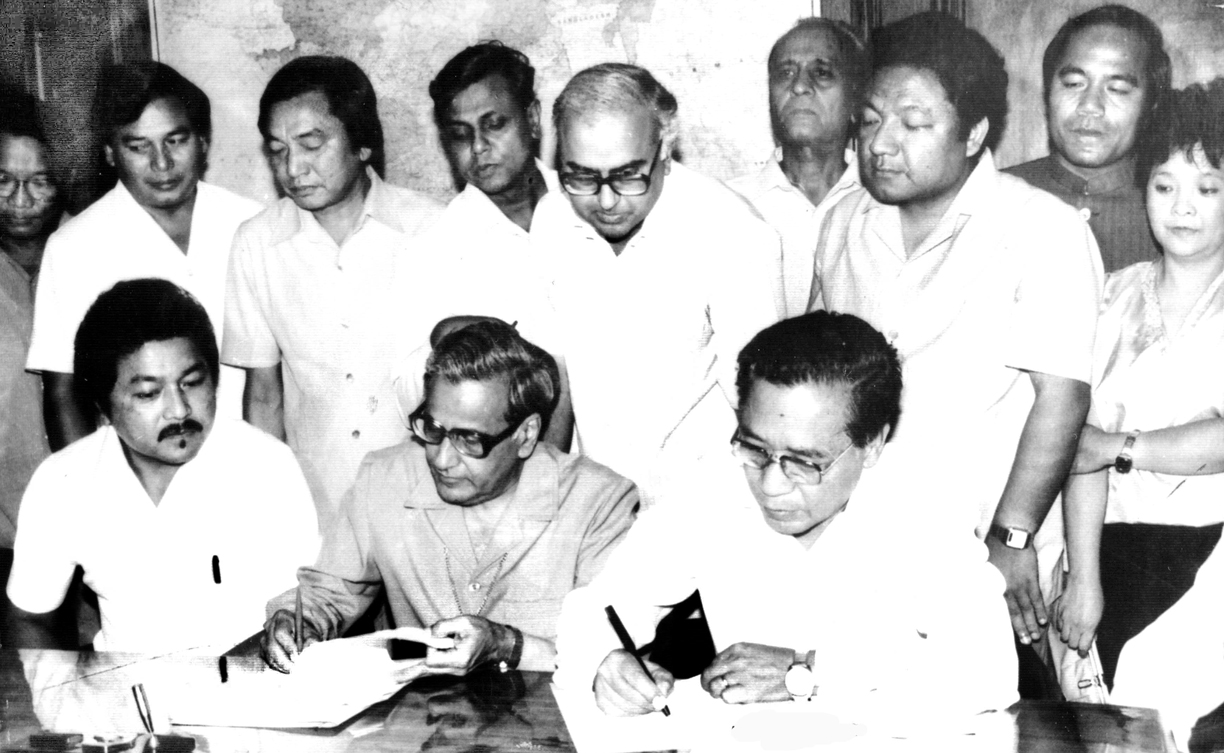
However, one could safely suggest that it wasn’t all success for India’s most high-profile spy—with his initiatives during the peak of the Kashmiri insurgency delivering mixed results. There was also the hijacking of Indian Airlines flight—IC 814—by the Harkat-ul-Mujahideen terror group, which landed in the Taliban-controlled territory instead of a scheduled landing in New Delhi. The negotiations with the hijackers, led by Ajit Doval, would prove to be a low point in the history of the Indian security establishment.
Nonetheless, his legendary status in the IB, leading intelligence and covert operations remains unscathed. Ajit Doval retired from the organisation in January 2005, but nine years later, was appointed as the NSA, succeeding Shiv Shankar Menon. Despite past accolades, there have been question marks surrounding his tenure as NSA, particularly the security establishment’s slow response to the 2016 terror attack on the Pathankot air force station.
Today, he is India’s most powerful bureaucrat.
(Edited by Gayatri Mishra)
Like this story? Or have something to share? Write to us: [email protected], or connect with us on Facebook and Twitter.
This story made me
- 97
- 121
- 89
- 167
Tell Us More
We bring stories straight from the heart of India, to inspire millions and create a wave of impact. Our positive movement is growing bigger everyday, and we would love for you to join it.
Please contribute whatever you can, every little penny helps our team in bringing you more stories that support dreams and spread hope.






